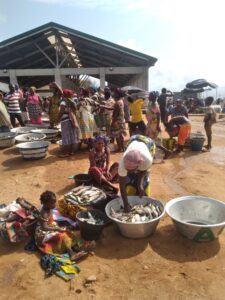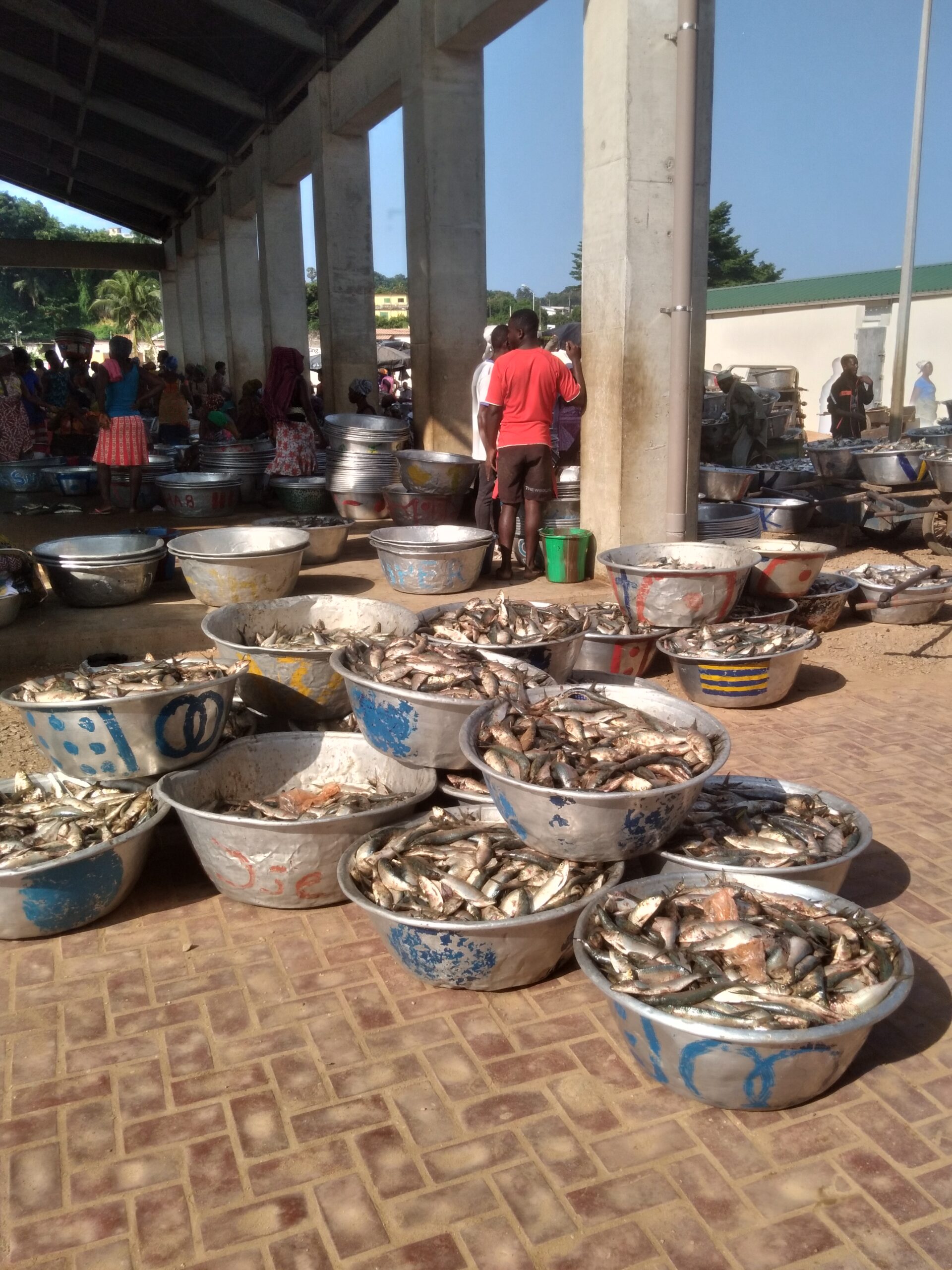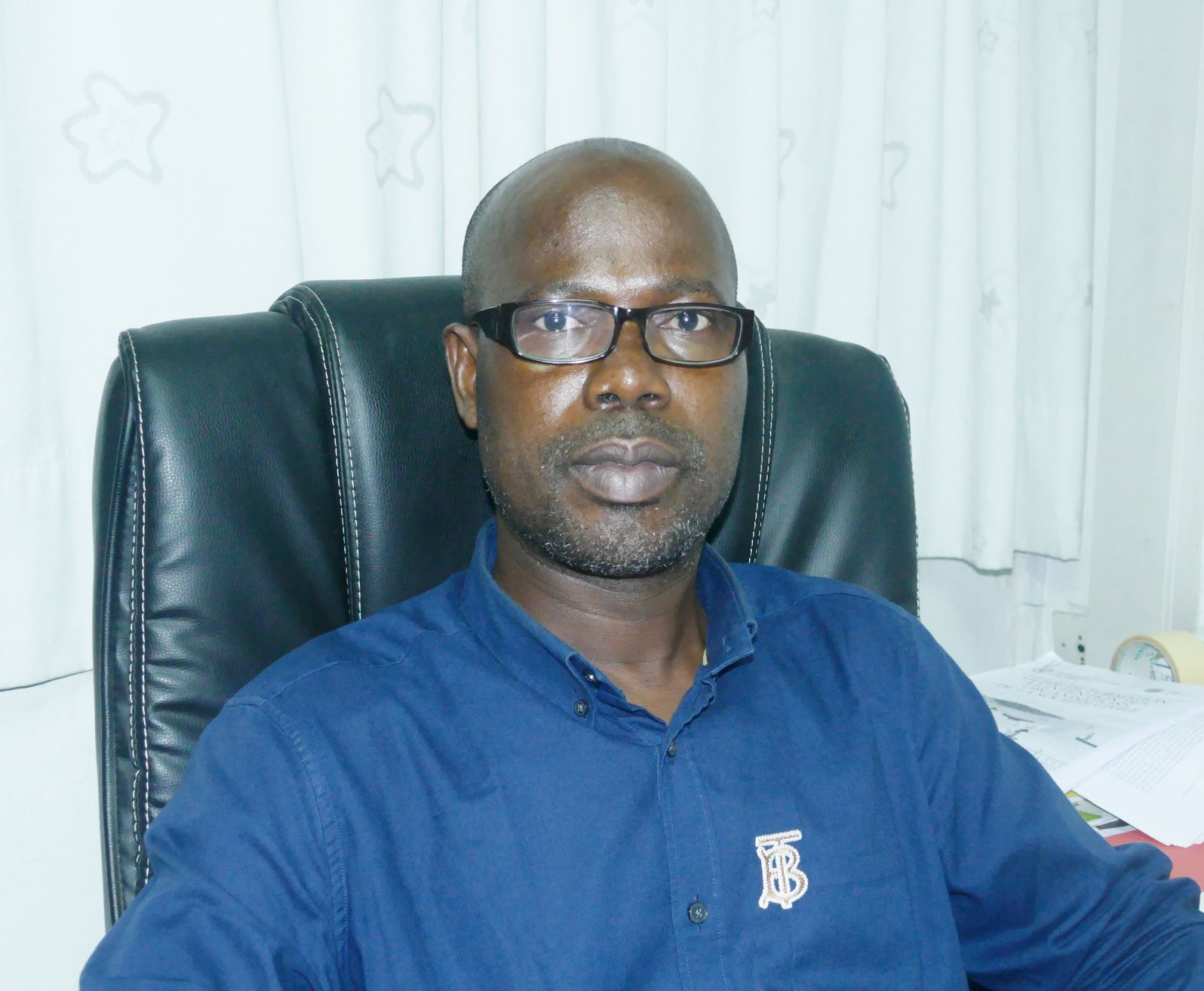Since June 2022, Inades-Formation has been involved in the “West African Coastal Fisheries Initiative /WACFI” project. When asked, Mr. Alphonse Kouamé, Food System Project Manager at Inades-Formation and coordinator of the service, tells us what this project consists of.
Inades-Formation is a stakeholder in the project “Coastal Fisheries Initiative in West Africa /IPC-AO”, can you tell us what this project consists of? and what are its objectives?
Mr. Kouamé: Since 2019, FAO has been implementing the Coastal Fisheries Initiative in West Africa (CFI-WA) project. It is a project aimed at preserving marine resources and ensuring that coastal fisheries can continue to play their crucial role in society, contributing to food security and economic and social development. IPC-AO provides practical support to coastal fisheries in three (3) West African countries, namely Cape Verde, Senegal and Côte d’Ivoire.
In Côte d’Ivoire, two pilot sites have been selected: Abidjan (Locodjro) and Sassandra, where some of the project activities are being carried out.
It is in this context that the FAO has pooled its efforts with Inades-Formation in order to develop and strengthen the capacities of the actors of the artisanal fisheries sector in areas related to the management of fishing activities.
What is the mission of Inades-Formation in this project?
Mr. Kouamé: The mission of Inades-Formation in this project is to strengthen the capacities of the actors of the artisanal fisheries sector in various fields, in Sassandra (Editor’s note: Sassandra is a coastal town of Côte d’Ivoire located 299km west of Abidjan) and in Locodjro (Editor’s note: Locodjro is a town located 299km west of Abidjan). Locodjro is a village located in the commune of Attécoubé (Abidjan), in Côte d’Ivoire.
Concretely, Inades-Formation will have to carry out three (03) main actions First, six (06) training modules will be developed on the themes of governance, entrepreneurship, simplified accounting, mobilization of financial resources and access to markets, the ecosystem approach to fisheries and the voluntary guidelines on artisanal fishing.
Then, Inades-Formation will have to organize and conduct two (02) different series of training workshops for the targeted actors starting in October in Locodjro and Sassandra. And finally, Inades-Formation will have to do a post-training follow-up and coaching of the trained actors.
How many people will be trained by Inades-Formation?
Mr. Kouamé: The targeted beneficiaries, numbering 175, are located in the area of Abidjan (Locodjro) and Sassandra and are composed of fishermen, fishmongers, processors mainly and other actors including butchers and shippers.
What will this project bring to the beneficiary groups?
Mr. Kouamé: In terms of results to be achieved at the end of this capacity building program, the actors  of artisanal fisheries will be equipped in terms of entrepreneurship development and will have a better knowledge of organizational and financial management tools of their activities. Women fishers and processors will have strengthened their capacities in leadership and good processing practices.
of artisanal fisheries will be equipped in terms of entrepreneurship development and will have a better knowledge of organizational and financial management tools of their activities. Women fishers and processors will have strengthened their capacities in leadership and good processing practices.
In addition, these fisheries actors will have a better understanding of the levers for sustainable access to local and regional markets as well as techniques for mobilizing financial resources.
Two preparatory missions have been carried out in Abidjan and Sassandra, so what is the next step in the program?
Mr. Kouamé: These two preparatory missions aimed to make contact with the local actors of the IPC-AO project in Locodjro and Sassandra and to prepare the next steps of the upcoming training sessions.
These preparatory missions made it possible to reconcile the training needs of the targeted actors with the capacity building plan established within the framework of the IPC-AO project. The arrangements for the practical organization of the training workshops were agreed upon with the managers of the two landing sites and the targeted stakeholders.
These missions also allowed the Inades-Formation team to better understand the issues and the functioning of the artisanal fisheries value chains in Côte d’Ivoire.
The next step of the program will be to implement the capacity building plan for artisanal fisheries actors, developed by Inades-Formation and agreed with the IPC-AO project.
How long will Inades-Formation’s intervention last?
Mr. Kouamé: The intervention of Inades-Formation will last 6 months, from June to December 2022.

Interview conducted by Marcelle Moroh – Communication General Secretariat









